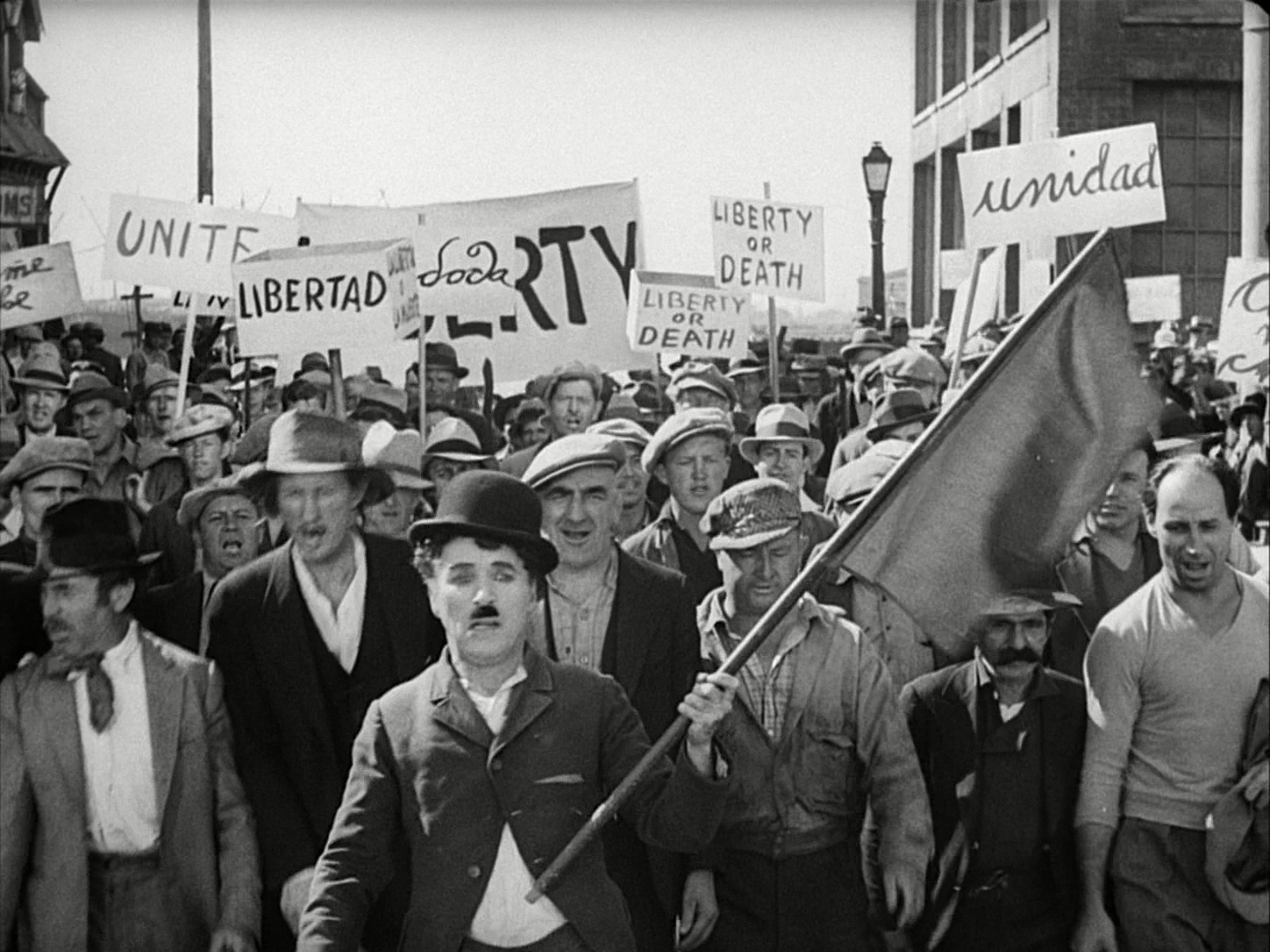
“Unemployment is the vital question. [...] Machinery should benefit mankind. It should not spell tragedy and throw it out of work.”
Charles Chaplin in a newspaper in 1931
“How does one get ideas? By sheer perseverance to the point of madness. One must have a capacity to suffer anguish and sustain enthusiasm over a long period of time. Perhaps it’s easier for some people than others, but I doubt it.
Of course every budding comic goes through philosophical generalizing about comedy. ‘The element of surprise and suspense’ was a phrase dropped every other day on the Keystone lot.
I will not attempt to sound the depths of psychoanalysis to explain human behaviour, which is as inexplicable as life itself. More than sex or infantile aberrations, I believe that most of our ideational compulsions stem from atavistic causes – however, I did not have to read books to know that the theme of life is conflict and pain. Instinctively, all my clowning was based on this. My means of contriving comedy plot was simple. It was the process of getting people in and out of trouble.”
Charles Chaplin1
“ [...] the USA has not spiritually assimilated Chaplin. Chaplin’s tragedy, his humour, acquire their intensity in the struggle between the artist and North America. North America’s health, energy, and élan attract and excite the artist, but its bourgeois puerility, its prosaic arrivisme, revolt the bohemian, a romantic at heart. For its part, North America does not love Chaplin. As everyone knows, he antagonizes the Hollywood moguls, who find him subversive. North America feels that something of Chaplin escapes them. Amongst the Yankee neo-Quakers of finance and industry, Chaplin will always be thought of as a Bolshevik. This contradiction, this contrast, feeds one of the greatest and purest contemporary artistic phenomena. Cinema allows Chaplin to present his struggle against suffering to humanity on an extension and with a simultaneity no artist has achieved before. The image of this tragically bohemian comic is a daily dose of happiness for five continents. With Chaplin, the art reaches the height of its hedonistic and liberatory function. With his smiles, his pained looks, Chaplin alleviates the world’s sadness. And, far more than any of its statesmen, philosophers, industrialists and artists, he contributes to the miserable happiness of man.”
Josécarlos Mariátegui2

